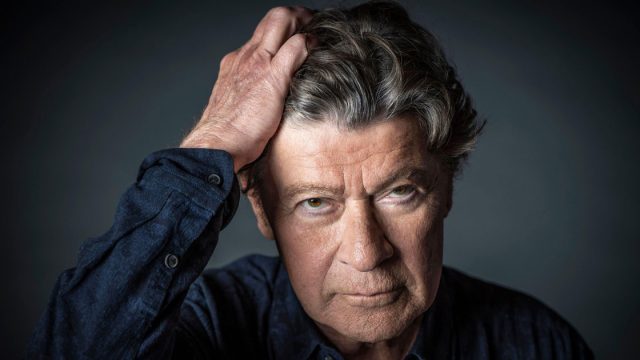Robbie Robertson, The Band Singer-Songwriter, Dies Aged 80

Singer, songwriter and guitarist Robbie Robertson, best known as a member of the Band, died on Wednesday in Los Angeles at the age of 80. He had suffered from a long illness, according to a statement released by his management.
Robertson’s manager of 34 years, Jared Levine, wrote: “Robbie was surrounded by his family at the time of his death, including his wife, Janet, his ex-wife, Dominique, her partner Nicholas, and his children Alexandra, Sebastian, Delphine and Delphine’s partner Kenny. He is also survived by his grandchildren Angelica, Donovan, Dominic, Gabriel and Seraphina.” In lieu of flowers, the family asked that donations be made to the Six Nations of the Grand River to “support a new Woodland Cultural Center.”
Born in Toronto on 5 July 1943, Robertson learned music from his mother’s side of the family, who were Mohawk and lived on the Six Nations of the Grand River reserve. As a teenager, he linked up with Ronnie Hawkins and his band the Hawks on the bar circuit in Toronto.
In 1965, a year after their split with Hawkins, Robertson and his fellow bandmates – drummer Levon Helm, bassist Rick Danko, pianist Richard Manuel and organist Garth Hudson – were recruited by Bob Dylan as a backing band, performing with the folk singer during his controversial pivot to non-acoustic music.
Renamed “the Band”, the group released their debut album Music from Big Pink in 1968 and followed up with such hits as The Weight, The Night They Drove Old Dixie Down, Up on Cripple Creek and It Makes No Difference. Music from Big Pink as well as subsequent albums The Band (1969) and Stage Fright (1970) combined barroom rock with the American new folk revival, and became critical and commercial successes. The Band’s music influenced such contemporaries as Eric Clapton and George Harrison as well as a generation of American roots musicians.
Substance abuse and creative disputes frequently threatened to tear the band apart during the act’s later years and the Band called it quits by 1976. Their farewell concert, held on Thanksgiving Day 1976 at the Winterland ballroom in San Francisco, was captured by Scorsese in The Last Waltz. Released in 1978, it’s now regarded as one of rock’s landmark concert documentaries.
Robertson continued to work on side projects with former Band members, as well as a solo artist in the subsequent decades. He released his self-titled debut in 1986 and his sophomore record, Storyville, in 1991, and contributed to records by Tom Petty and the Heartbreakers, Ringo Starr, Neil Diamond and others. Robertson released his final solo album, Sinematic, in 2019.
He also maintained a long creative relationship with legendary director Martin Scorsese, who produced another documentary on the Band, Once Were Brothers – a retrospective that leaned heavily on Robertson’s recollections – in 2019. Robertson scored several of Scorsese’s films, including Raging Bull, Casino, The Wolf of Wall Street and The Irishman. Scorsese’s upcoming film Killers of the Flower Moon, scheduled for release later this year, was also scored by Robertson.
Martin Scorsese, led tributes, saying he remembered Robertson as “one of my closest friends, a constant in my life and my work”.
Neil Diamond tweeted that the “music world lost a great one with the passing of Robbie Robertson”, while Stephen Stills remembered him as “always kind and generous”. E Street Band musician Stevie van Zandt remembered him as “a good friend and a genius” and “an underrated brilliant guitar player adding greatly to Bob Dylan’s best tour and best album”.
Other noted musicians in the Canadian music community have expressed their condolences. Bryan Adams eulogised Robertson saying, “Thanks for the great music”, while Ron Sexsmith said, “His songwriting and guitar playing made such a lasting impact on music”.

